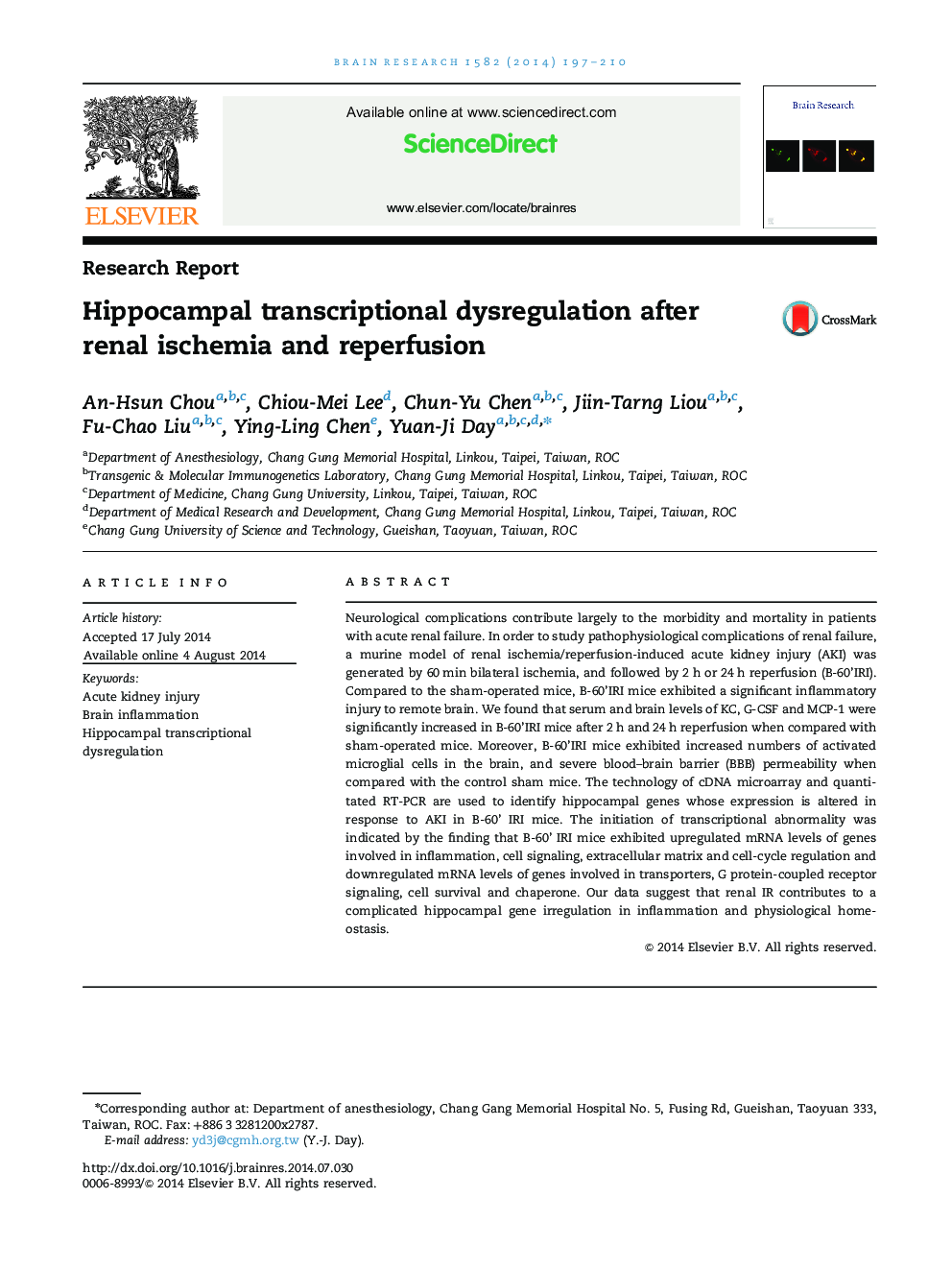| Article ID | Journal | Published Year | Pages | File Type |
|---|---|---|---|---|
| 4324108 | Brain Research | 2014 | 14 Pages |
Abstract
Neurological complications contribute largely to the morbidity and mortality in patients with acute renal failure. In order to study pathophysiological complications of renal failure, a murine model of renal ischemia/reperfusion-induced acute kidney injury (AKI) was generated by 60Â min bilateral ischemia, and followed by 2Â h or 24Â h reperfusion (B-60'IRI). Compared to the sham-operated mice, B-60'IRI mice exhibited a significant inflammatory injury to remote brain. We found that serum and brain levels of KC, G-CSF and MCP-1 were significantly increased in B-60'IRI mice after 2Â h and 24Â h reperfusion when compared with sham-operated mice. Moreover, B-60'IRI mice exhibited increased numbers of activated microglial cells in the brain, and severe blood-brain barrier (BBB) permeability when compared with the control sham mice. The technology of cDNA microarray and quantitated RT-PCR are used to identify hippocampal genes whose expression is altered in response to AKI in B-60' IRI mice. The initiation of transcriptional abnormality was indicated by the finding that B-60' IRI mice exhibited upregulated mRNA levels of genes involved in inflammation, cell signaling, extracellular matrix and cell-cycle regulation and downregulated mRNA levels of genes involved in transporters, G protein-coupled receptor signaling, cell survival and chaperone. Our data suggest that renal IR contributes to a complicated hippocampal gene irregulation in inflammation and physiological homeostasis.
Related Topics
Life Sciences
Neuroscience
Neuroscience (General)
Authors
An-Hsun Chou, Chiou-Mei Lee, Chun-Yu Chen, Jiin-Tarng Liou, Fu-Chao Liu, Ying-Ling Chen, Yuan-Ji Day,
